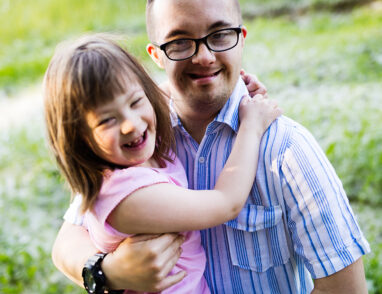How Peer Support Can Help Close the Gaps in Behavioral Healthcare
May 22, 2025 · Becky Kolinski
The use of peer support is a growing trend for populations affected by mental health and substance use disorders. Peers—both paid and volunteer—have many of the same lived experiences as the people they serve, and can help them navigate the health care system, access treatment and overcome barriers to recovery.
Peers are another avenue of support in the behavioral care system—their shared experience related to mental health, addiction and recovery helps them build trust relationships. Many studies show the benefits of peer support: decreased days in inpatient care, increased engagement in outpatient treatment, reduced readmission rates and lower relapse rates.
“There’s a stigma associated with receiving mental health and substance use treatment,” says Chrissy Craig, NCQA’s Senior Health Care Analyst. “Because of their lived experience, peers can connect with people who may not be ready to engage in traditional treatment approaches. They can build trust and encourage individuals to get the help they need.”
HEDIS and Peer Support
Recognizing the importance of peer support, NCQA has added it as an option for follow-up care in four HEDIS® measures:
- Follow-Up After Emergency Department Visit for Substance Use (FUA).
- Follow-Up After Hospitalization for Mental Illness (FUH).
- Follow-Up After Emergency Department Visit for Mental Illness (FUM).
- Follow-Up After High-Intensity Care for Substance Use Disorder (FUI) (MY 2026).
“Peer support can help alleviate the behavioral health workforce shortage and provide timely access to care, but adequate reimbursement is a challenge,” says Sarah Sweeney, NCQA’s Assistant Director, Behavioral Health. “Including peer support as follow-up care in HEDIS demonstrates its value, and can further legitimize its role in behavioral health.”
Peer Support in Action
Peer support was a hot topic at the 2025 Health Quality Forum. Here are some real-world insights from NCQA’s panel, Innovative Solutions in Behavioral Health:
- Peer support is about building a relationship and focusing on what matters to the individual.
- People struggle to stay in recovery. Being able to talk to someone who went through something similar—and is in recovery—can be a powerful inspiration.
- Peers live in the communities they serve and meet people where they are—and that doesn’t necessarily happen on a 9 to 5 schedule.
- There are many examples of when peer support can be effective:
- With the family of a child with a significant mental health challenge, or who is lost in the system.
- With parents who have lost custody of a child and don’t have the support they need.
- With adolescents and young adults in mental health or substance use treatment in an inpatient or partial hospitalization program.
- With people in shelters or living in homeless encampments who may need help getting services and support.
- Peer support can help alleviate issues of access and availability of care by connecting people with services.
- Behavioral health organizations need more leaders with lived experience who understand the system’s limitations and can help develop innovative solutions.
Learn More
Visit NCQA’s Behavioral Health Resource Center to learn more about our programs and research.
Read our white paper Defining the Behavioral Health Workforce: The Need for a Standardized Typology.
HEDIS® is a registered trademark of the National Committee for Quality Assurance (NCQA).








